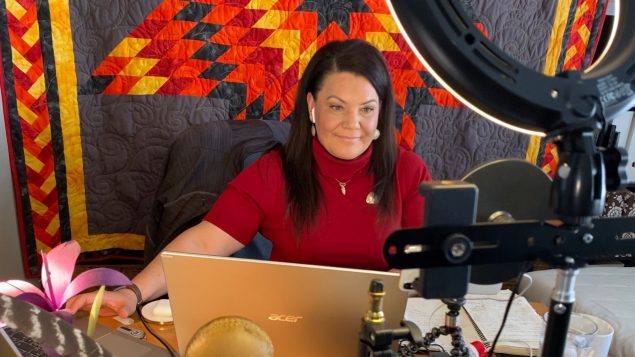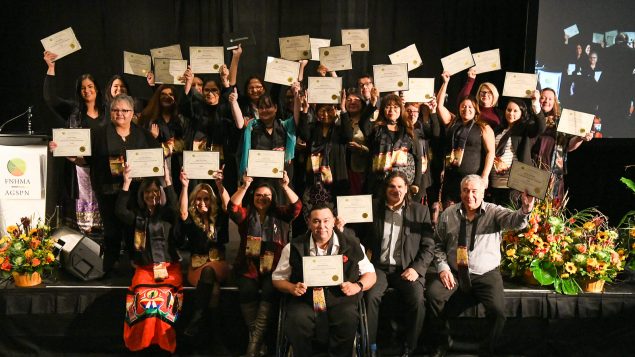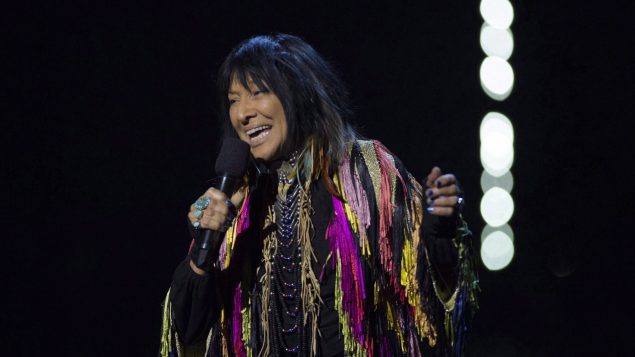An Indigenous non-profit organization is holding a virtual celebration on Wednesday to thank health care workers and managers and first responders across Canada for their work in keeping First Nations communities safe amid the global COVID-19 pandemic.
The three-hour online event, organized by the First Nations Health Managers Association (FNHMA), will feature appearances by Prime Minister Justin Trudeau, members of his cabinet, opposition politicians, Indigenous leaders, as well as performances by various Indigenous artists, including Buffy Sainte-Marie.
The event will also celebrate the graduation of the latest cohort of newly certified First Nations health managers, and issue this year’s excellence award, said Marion Crowe, founding executive director and CEO of the FNHMA.
“We have a debt of gratitude and we want to celebrate and share our thanks to everybody who was working around the clock to keep everyone safe,” said Crowe, who is a member of the Piapot First Nation in Saskatchewan.
The celebration will be livestreamed by Indigenous Health Today, a NationTalk company that has been running weekly virtual townhalls.
Early in the pandemic, the FNHMA decided that they needed to get critical information out to the First Nations communities through weekly virtual townhall meetings, Crowe said.
These online townhall meetings featured various partners, sharing critical information with First Nation health managers as it pertained to the pandemic, as well as health directors sharing their own experiences of responding to the crisis in their communities, she said.

Marion Crowe is the founding executive director and now the CEO of the the First Nations Health Managers Association (FNHMA). (Photo courtesy of Lucy Crowe)
Unlike the rest of Canada, where health care services fall under the provincial government jurisdiction, in First Nations communities the health care is delivered through the federal government, Crowe said.
Health care was part of the treaties signed by First Nations with the British crown in the 19th century, she said.
There are “Medicinal Chest Clauses” in these treaties that uphold that “as long as the rivers flow, the sun shines and the grass is growing,” First Nations will have access to much needed healthcare systems, Crowe said.
Now, there is a push in Canada for First Nations and Indigenous populations to take over control of delivering their health care services as opposed to it being a federal, crown relationship, Crowe said.
“When we look at our Indigenous populations wherever you are in the globe, we want to respect and uplift all of those historical teachings, the ceremonies, integrating that holistic component of health: the connection to land, the spirituality, the mental perspective, the physical perspective and looking at the whole person, as opposed to a symptom,” Crowe said.
“Let us take over delivery of those services so we can incorporate those valuable teachings.”

Members of the 2019 First Nations Health Managers Association graduating class hold up their diplomas at the FNHMA Conference in November 2019 (Fred Catrroll/FNHMA)
Still, many First Nations communities face tremendous challenges in delivering health care services, she said.
“When you look at social determinants of health – infrastructure, housing, education – they all play a critical role in ensuring quality, accessible health care systems in Canada,” Crowe said.
Yet, many First Nations communities still don’t have access to clean drinking water, she said.
“Infrastructure has not been expanded to some of those far-reaching points and we think about tuberculosis still being a problem, when you throw in a pandemic, it’s like lighting a match and throwing into a whole mix of social circumstances,” Crowe said. “And then you add on the intergenerational trauma of being a colonised society.”







For reasons beyond our control, and for an undetermined period of time, our comment section is now closed. However, our social networks remain open to your contributions.